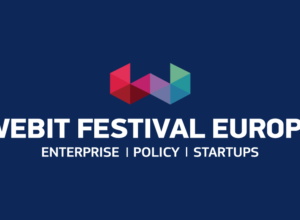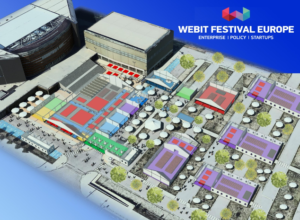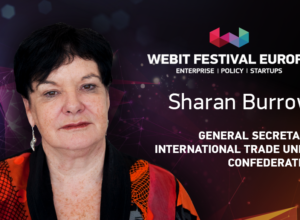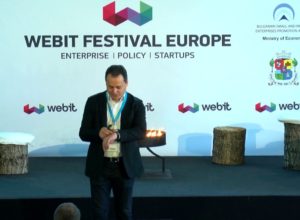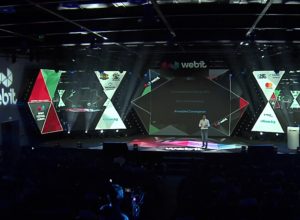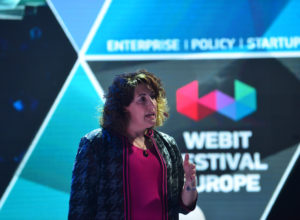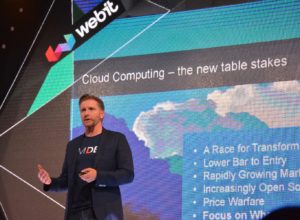Tag: Webit.Festival Europe
We’ve updated our Privacy Statement
There is so much buzz around the new EU’s General Data Protection Regulation (GDPR)
At Webit we are firmly committed to privacy and data protection and we are happy to confirm that we, too, have taken all necessary steps to ensure [full] compliance with the GDPR. All necessary controls and features are in place so you can continue to use our service with confidence.
Feel free to check out our updated Privacy Statement to understand more about the types of information we may collect, how we use it, and why we request it.
Webit is all about community and empowering your success through connecting you with potential partners, investors and clients from all around the world.
SPECIAL 50% DISCOUNT
We also want to take this opportunity to let you know that Webit is welcoming this new era of data privacy by providing all our subscribers a special "DATA present” 50% off from all tickets for Webit.Fetsival Europe 2018 starting this Friday, 25 May till 29 May.
We release a total of 250 tickets for this special "DATA Present".
Register here
and join Webit.Festival Europe with a special discount of 50% on all tickets with code: GDPR
We collect personal data when you register with us via our website or when participating in our events, exchange personal contacts, etc. We will use your personal information to provide and further improve our services, to ensure the security of our website and information systems, as well as for fraud prevention. We do not share it with other companies or organizations. We send to our customers, partners, participants in our events, subscribers and community our information bulletin about the upcoming events, promotions and free tickets, latest developments, new technologies, meetups, parties, products and services, etc.
Most of the hotels in Sofia are already booked for the...
Most of the hotels in Sofia are already booked for the upcoming Webit.Festival Europe 2018!
As of today (40 days before Webit) Sofia is booked at almost 87% for the days of both - the Festival and the Digital Assembly, the two major events, part of the EU Digital and Innovation Week in Sofia. If you plan to join Europe's tech, digital and media festival and the unparalleled EU digital policy gathering for 2018, you'd better hurry up! There are only 6 available hotels for which you may use the special Webit discounted prices in Sofia - the Digital Capital during the festival - 25 - 27 June, 2018. One ticket for all events! Prices Go Up This WeekExhibitions opportunities
As Webit doubled in size and we have moved to a much bigger venue, there are new available exhibiting slots. Join the 200+ exhibitors of Webit.Festival Europe 2018. Webit.Festival was among the first events in the world to introduce the multi content tracks (parallel independent summits) as part of the conference agenda 10 years ago.4000 already booked their tickets to Webit
So far over 4000 influencers have registered for Webit.Festival Europe. They come from all over Europe and rest of the world (a total of 103 visiting countries so far). See who from your network is already booked for Webit.Some statistics:
Over 68% of all attendees are senior-level decision makers. Over 70% are from Europe (38% from CE Europe, 32% W Europe). Next largest attendees groups come respectively from North America, followed by Asia and AfricaIt is not about the size (although Webit is BIG), It is about the experience and your KPIs!
In order for our sponsors, exhibitors and attendees to better focus on their business goals and to experience unparalleled top level networking we have expanded the floorplan and built special networking and 1:1 meeting zones around each of the parallel summits.10 separate events under one roof
Webit hosts 6000+ attendees but each parallel summit and expo welcomes between 300 and 800 of the leaders in the particular domain. Thus you join an intimate, highest level possible business networking while enjoying the benefits of a global large scale event.General Secretary of ITUC – Sharan Burrow joins Webit.Festival Europe in...
Burrow underlines the necessity of female participation in organized labour
Sharan is well known for her international advocacy on labour standards, corporate responsibility, climate change, investment in infrastructure and the green economy, investment in the care economy, women, equality and diversity, global migration and employment."I am a warrior for women and we still have work to ensure the inclusion of women in the work place and in our unions. The struggles for women are multiple – too often within their families for independence, then in the workplace for rights and equal opportunity, in their unions for access and representation and then as union leaders. But the investment in and participation of women is not only a moral mandate it is an investment in democracy and a bulwark against fundamentalism and oppression. Organizing women is and must continue to be a priority for the ITUC."
The world of work has to refocus on the fundamentals
On the matter of the priorities for governments and social partners to build the future of work Sharan Burrow thinks that we must repair the foundations and social partners have to say what will work for business and for people. We can reshape the world of the economy and the world of the future of our children and our grandchildren. Burrow is one of the B Team leaders, a commissioner on the Global Commission on Business and Sustainable Development and the New Climate Economy Global Commission on the Economy and Climate. She was a Co-Chair of the World Economic Forum Annual Meeting in Davos for 2015, 2016 and also joined this year’s all-women co-chair team. The ITUC is a supporter of the UN Principles for Responsible Investment (UN PRI). Under Sharan's leadership the ITUC's Workers’ Capital Committee has been strengthened. More than US$ 13 trillion of retirement funds are under joint trustee management and the ITUC and its affiliates are active in both trustee education, corporate governance and shareholder activism.Here you can see a full list of the confirmed speakers at Webit.Festival Europe 2018, while here you can get all the information you need about the tickets for the event."We have a vital role to play to protect jobs in existing workplaces and industries by demanding and bargaining for industrial transformation, to organize new quality jobs in the emerging green economy and to fight for the ’Just Transition’ measures that ensure we leave no one behind. This means work for our pension funds too. It means investing for the long term."
Perspective from the pharma industry to value-based care
Healthcare spending is increasing faster than than the current economic climate’s capabilities
Many countries are concerned that higher spending doesn’t lead to proportionally better outcomes. Healthcare systems waste a significant amount of resources that limits the fiscal space and hinders performance. The largest percent of wasted resources goes to over-hospitalization, over-examinations and over-prescription of pills. Waste is also created by inefficient or flawed rules, overly bureaucratic procedures and poor execution or lack of best practices, e.g. effective preventive care or patient safety, low volume for specific treatments per hospital, etc. Mr Popov made a point that the most expensive pill appears to be the one which hasn’t delivered any positive effects to the patient. The pricing in the industry has to start evolving with accordance to the fast paced changes in technology and the development of new ways of treatment. Companies should to be paid for a result delivered, not for a specific pill. A shift needs to be made in pricing, away from what has been a transactional approach to a value-based approach. That should mean focusing on the outcomes and really communicating the value of the medicines and pricing them accordingly. Care routed in outdated habits, ignoring scientific findings and motivated by something other than optimal care shouldn’t be the care of today.Focusing on value-based care, reducing waste and directing investments to the point where greater value can be produced is critical for sustainability.
Universal health care aspirations will be hard to materialize if we don’t shift to value-based care and change policies to support this shift. This change requires collaboration with every member of the healthcare ecosystem and better public-private partnership. Healthcare systems should stimulate more effective treatment results with the help of all parties involved in the process - patients, medics, researchers, healthcare providers and pharma companies. If you want to stay up-to-date check the Webit.Festival website for upcoming speakers and our ticket options.Megatrends in Healthcare
Webit.Festival Europe 2017 shaped the milestones for all things digital in healthcare
The topic will be continued in 2018 with a separate 2-day event called Webit.Health co-chaired by Plamen Russev, the Chairman of Webit Foundation and Prof. Shafi Ahmed, Co-founder and surgeon of Medical Realities. Make sure to book your tickets now, at the Super earlybird price here. 2017 health Summit saw some of the biggest companies’ representatives in the world sitting together in a panel discussion - Rumyana Trencheva, Managing director SAP SountEast Europe, Mr Omer Saka, Partner at Deloitte, Dr Stamen Popov, General Manager Oncology of Novartis and Milena Stoycheva, CEO of JA Bulgaria, moderated by Dr. Rosen Dimitrov, Public Affairs Manager at Novartis. You have a vast experience in healthcare and innovations and wish to tell us about it - apply for speaking here. Ms Trencheva gave a good start of the discussion assuring that megatrends all over the world are not something selected, they are not happening in selected, VIP, countries - they are spreading. The contemporary consumer is demands more and more from the pharmaceuticals, from the technology companies and it is becoming ever more challenging to make sure consumers’ needs are met.The change of our perception on what healthcare is
Another megatrend that was clearly stated by Mr Saka is the change of our perception on what healthcare is do we mean a pill, a medical device of some kind or a hospital bed. The key solution is finding a way for these three elements to work together in the modern healthcare system. Furthermore, the matter of how much we, as consumers, pay for healthcare came to forefront. It is expected that in the next 10 years or less patients will be treated and will be provided with solutions that go beyond the pill - and this is for the mass, not only for the selected ones who can afford it. Dr Popov clearly stated that pharmaceutical companies no longer rely on the pill as a method of treatment - they broaden their vision using the digital technologies and these solutions will very soon come to patients who need them. This gives a huge advantage - transparency. Each of us, as human beings, is a data center, based on the choices we make every single day. In fact, transparency in healthcare system is a major block each of the technology companies all over the world are trying to achieve.With this follows one of the most important Megatrends - prevention as the form of treatment
It is considered that people nowadays take more and more care of themselves - in the form of wellness. We will have a huge number of population taking great measurements to maintain their health; in order to survive, people will take ownership on one’s health, environment and the ecosystem as well as putting efforts into changing the ecosystem. Finally, all these megatrends are impossible to happen without collaboration of technology companies, startups to bring fresh ideas and doctors. There’s no need for an engineer to develop an app by himself when they clearly don’t know specifics, rather, it is the healthcare industry to develop and change the ecosystem. Going out of the pharmaceutical industry, the biggest companies are also working on building connections with physicians and to use these relations to integrate new type of companies into this world. Webit.Health will continue this kinds of discussions in 26th - 27th June with ever more interesting guests who will show in action and demonstrate the modern healthcare - something that is happening now, not some time in the future. If you have an interesting idea and your company is less than 5 years old - show it by applying here.Central & Eastern Europe risk-capital ecosystem on the world’s map
CEE sure has its historical, economical and national challenges to overcome
The diversity of this region consists of countries in the EU, countries yet to join the EU, countries with an “on the way” developed startup ecosystem and ones that have yet to work towards the achievement of it. This calls for quite a turbulent, hard to define business environment with ounces of political, ethical and cultural differences ranging for each country. Despite the tiny late development, things are starting to look more and more promising. The IT sector has been rapidly growing, adding to a growing GDP for some of the countries. In the last years, we have seen business association networks popping up in the region. One of the things happening more often now is that a growing number of these national and regional associations have been connecting with large organizations and business angel associations on a European and worldwide level. Webit.Festival gathers exactly the people, entrepreneurs and investors involved in this ecosystem mixed with players in the worldwide scene to create a colorful mix. Check our website for more details of the 2018 upcoming edition.The symbiosis between humans and machines is our best hope for...
“We now use AI in situations where we didn’t have any solution yet - where technology is not capable of achieving specific results. We are putting a lot of efforts, time and resources to get there. What we have proved already is that we can solve complex, but narrow problems”, he said.The first demonstration of a machine that was capable of solving a complex problem was in 1997 when IBM’s Deep Blue defeated Garry Kasparov in chess. Roughly 15 years later a team in IBM Research had the goal to understand natural human language. The public demonstration was to defeat a human at the show Jeopardy and this was accomplished. Another thing that happened last year was Alpha Go from Google DeepMind defeating Lee Sedol in the boardgame Go and also succeeding to solve a very complex problem in a very narrow domain. And just recently a team from Carnegie Mellon University succeeded in developing a smart machine that has defeated world class poker players in Texas Hold ‘Em because it can already understand and deal with incomplete information. This all means that the future goes into the direction where AI will be used for negotiation processes, strategy development and even high level policy analytics.
“When you go to your car dealer in the future you may have a small application on your device that helps you negotiate the best possible deal”, Auer-Welsbach said.The biggest issue before the AI today is understanding humans and language. The machines understand natural text as data, not as text. This is a problem, because they are missing the context, which is necessary in order to really make use of all the data. In a recent attempt IBM broke industry record in conversation speech recognition by getting it down to 5.5%. This is important because the human error is at 5.1% which means that we are very close to understanding the natural human language from a machine perspective. This new ability can be used to build transformative relationships between humans and machines. [caption id="attachment_5072" align="aligncenter" width="640"]
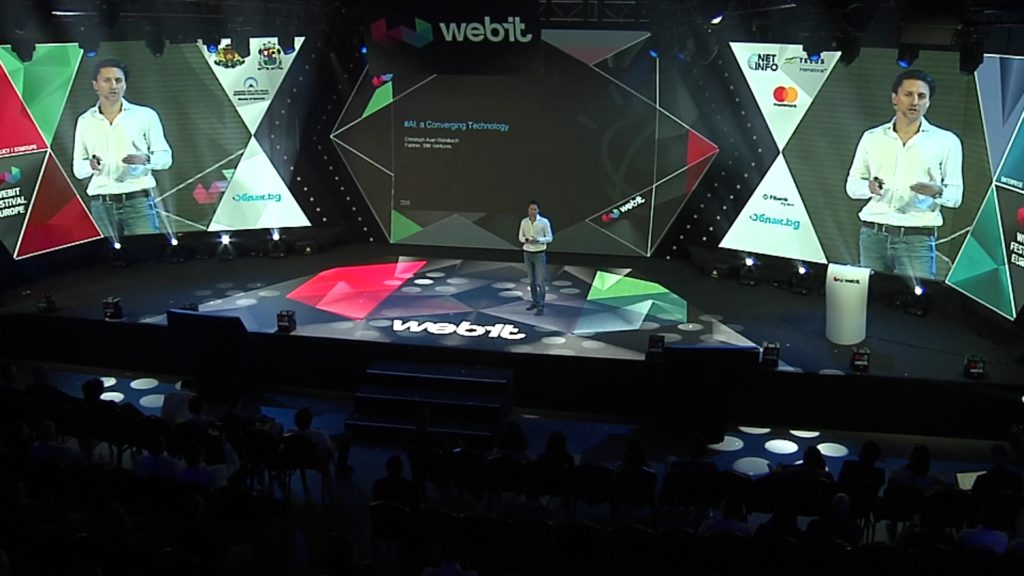 The Partner at IBM Ventures Christoph Auer-Welsbach.[/caption]
Christoph Auer-Welsbach predicts that there are 3 paradigms that are going to shape our communication with AI enabled computers in the near future.
The first is that enterprise applications and all the major IT organizations in the world will make use of any kind of conversation methodology, bot or automating systems, in the next couple of years. So our whole way of interacting with machines is going to change from input-driven to engagement and conversation-driven.
The second paradigm AI is pushing is mass individualization. Now we are living in a world where applications and solutions are built to satisfy the most common and homogenous group of people and reach them. The mass standardization we can see now is changing to mass personalization in a way that not only from a customer service view, but also from a product development and engagement point of view machines will be very much personalized on a person’s behavior, demand and attitude.
The third is that we are moving to the world of AI-enabled Convergence. It enables other technologies to flourish and get into the system contextual information and act proactively and not from a passive response point of view.
Artificial Intelligence is still in its infancy. That is why we need to be active and have the curiosity to understand what it is. It is important for every person on Earth to check the latest trends in this technology and understand how it could impact our personal and business life.
The Partner at IBM Ventures Christoph Auer-Welsbach.[/caption]
Christoph Auer-Welsbach predicts that there are 3 paradigms that are going to shape our communication with AI enabled computers in the near future.
The first is that enterprise applications and all the major IT organizations in the world will make use of any kind of conversation methodology, bot or automating systems, in the next couple of years. So our whole way of interacting with machines is going to change from input-driven to engagement and conversation-driven.
The second paradigm AI is pushing is mass individualization. Now we are living in a world where applications and solutions are built to satisfy the most common and homogenous group of people and reach them. The mass standardization we can see now is changing to mass personalization in a way that not only from a customer service view, but also from a product development and engagement point of view machines will be very much personalized on a person’s behavior, demand and attitude.
The third is that we are moving to the world of AI-enabled Convergence. It enables other technologies to flourish and get into the system contextual information and act proactively and not from a passive response point of view.
Artificial Intelligence is still in its infancy. That is why we need to be active and have the curiosity to understand what it is. It is important for every person on Earth to check the latest trends in this technology and understand how it could impact our personal and business life.
“The symbiosis between humans and machines is the most capable way of making use of technology and moving forward into the future. Because we can enhance each other’s capabilities. On the one hand we have human’s capabilities like compassion, intuition and value judgement and on the other we have the learning, discovery and fact checking that machines excel at”, the expert said.You may watch Christoph Auer-Welsbach’s full lecture here: If you want to keep up with the latest trend in the world of digital economy and technology, then Webit.Festival is the right place for you. Visit our website and book 2 of our Super Earlybird tickets for Webit.Festival Europe 2018 for just €100. Feel the Webit vibe with some of the best photos from this year’s event! [easingslider id="4954"]
Big Data will lead to the biggest transformation in healthcare we...
“We have made a lot of advancements in medical technology. Imagine the advancements we could have made if instead of just a fraction of data, we were able to access the entire lexicon of data that is available for an individual. Think what we could do and think of the price of not knowing”, she said.Now, many patients are not able to get the right cancer treatment, because doctors don’t know the exact characteristics of the individual tumor. People with chronic diseases don’t have access to the right medicine, because their doctors don’t have their full medical history. All of these cases are going to change with the help of Big Data. But first, experts, like the ones working in IBM, must deal with several challenges. There are a lot of bad sources of data out there, so you need to be able to separate the true from false. Doctors have got data from medical records, laboratory data, medical literature, radiology data. So they need to be able to aggregate all those forms of information to get a complete picture of what is going on with an individual. If we combine all these we will start to get to the true value of the data and start to really do things with it in terms of what we are delivering to an individual patient. [caption id="attachment_5068" align="aligncenter" width="640"]
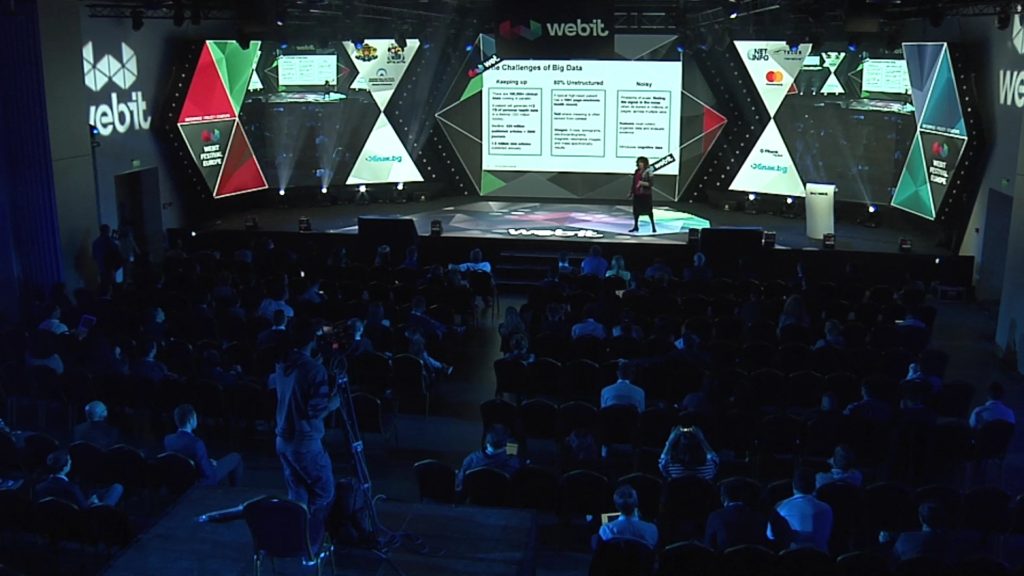 The Deputy Chief Health Officer for IBM Watson Health Dr. Lisa Latts[/caption]
We are now in in the Third age of computer technology. The first age in the early 1900’s was the Tabulating systems era - computers that basically can do math and count. Then in the 1950’s we started with Programmable computers and we are still in that age today where we have computes that we can give a variety of information and tell them what to do with it.
There is so much information available now that it is impossible to program all the characteristics and all the possible programs. So that brings us to the Cognitive computers era. IBM Watson started to work on this in the early 2000’s and 15 years after that was the official launch of Watson Health.
A cognitive computer is different from programmable computer, because it can understand, reason, learn and interact. All of this allows Watson to harness entire bodies of data. It can actually read through the data it is fed to it.
The Deputy Chief Health Officer for IBM Watson Health Dr. Lisa Latts[/caption]
We are now in in the Third age of computer technology. The first age in the early 1900’s was the Tabulating systems era - computers that basically can do math and count. Then in the 1950’s we started with Programmable computers and we are still in that age today where we have computes that we can give a variety of information and tell them what to do with it.
There is so much information available now that it is impossible to program all the characteristics and all the possible programs. So that brings us to the Cognitive computers era. IBM Watson started to work on this in the early 2000’s and 15 years after that was the official launch of Watson Health.
A cognitive computer is different from programmable computer, because it can understand, reason, learn and interact. All of this allows Watson to harness entire bodies of data. It can actually read through the data it is fed to it.
“There is no way that a clinician can keep up with that amount of information, but Watson can. It can read million pages in a second and understand them. It can learn. So it will digest the data and will come up with evidence-based conclusions as a result. Those conclusions may or may not be right, so it takes humans to train Watson in terms of what is right and what is wrong. And it gets better and better over time”, Dr. Latts explained.All this is possible thanks to the Watson Health Platform. It allows IBM to create an ecosystem, which can be used by developers within the company and outside. This has expanded to a network of collaborators and partners creating innovation across the world. Lisa Latts is sure that artificial intelligence will not replace human doctors. Instead, the combination of humans and Watson creates augmented intelligence, that will help them focus on the fields they are better than the machine. It will free up physicians and clinicians for what people and doctors do best - interactive communication. To do their job in the best way possible, physicians need to use interpersonal communication, compassion and to be able to abstract, generalize and dream. Meanwhile, cognitive computer systems are good at taking vast amount of data and come to conclusions. All these factors are used to advance evidence-based care. Traditionally we say that in medicine it takes 17 years for a breakthrough to be translated into clinical best practice. But in the dynamic society we live in, we don’t have the luxury to wait that long any more. Using a Watson-powered solution, clinicians аре quickly armed with evidence-based and ranked treatment options for their consideration. Recommendations based on the patient’s condition and medical evidence are available in approximately 30 seconds. A physician have to read 29 hours each work day to stay up-to-date with the latest medical literature. Watson needs only 3 seconds to read 200 million documents.
“Today we are working on a variety of solutions from cancer care to evidence-based care in a value-based care setting to life science. We, Watson Health, aspire to improve lives and give hope delivering innovation to address the world’s most pressing health challenges through data and cognitive insights”, Latts said.You may watch her full lecture here: If you want to keep up with the latest trend in the world of digital economy and technology, then Webit.Festival is the right place for you. Visit our website and book 2 of our Super Earlybird tickets for Webit.Festival Europe 2018 for just €100. Feel the Webit vibe with some of the best photos from this year’s event! [easingslider id="4954"]
If your company doesn’t like change, it will eventually become irrelevant
“It is important to realize this. If you look at where you are and where you want to be make sure to let go of the past to move on to the future”, the expert said.He reminded that Cloud Computing is actually not a new thing, but we can all give credit to Amazon for making this the number one priority for many companies today. What is important to understand about Cloud Computing is that it is now a must have thing. The Cloud Computing era brought forward a process, called Digital Transformation. A lot of established companies now go through the rapid attempt to digitalize themselves and there is a real race to transform. The other thing that Cloud Computing brought is the lower bar for entry in the space of technology. If we go back 10 or 15 years ago, it required a much bigger minimal investment to try to launch a service. In the ever evolving markets there is a price war and ultimate race to the bottom. As soon as a company comes with a low price, everyone try to chase after. The markets are growing faster than we can actually imagine thanks to trends, such as IoE and AI.
“What that means for all the cloud vendors is that they have to focus on what makes them different. That is the key thing to succeed. It can not all go down to zero in terms of revenue from our services so we have to differentiate”, said Jacobi.The important thing when we look at the things popping out on the market is that they go through some form of evaluation of the market. In the case of connected devices this process is called IoT Chasm and it follows several steps. A new trend comes out and everybody is super excited. We start with the honeymoon period which is like coming to a new place and saying that you are going to stay there forever. Then you start noticing some functions that doesn’t suit you well. But after a while you realize that you are committed to the technology. When a user is already committed, he starts looking not only for convenience, but for things like security of the product. Many IoE companies think of the security as of something that is going to come later. But we are on a stage of development in which someone can hack a car and steer it off the road Once the commitment is a fact, we get into those deeper issues, and as soon as we go through them we get into the major adoption curve of a new technology. [caption id="attachment_5060" align="aligncenter" width="640"]
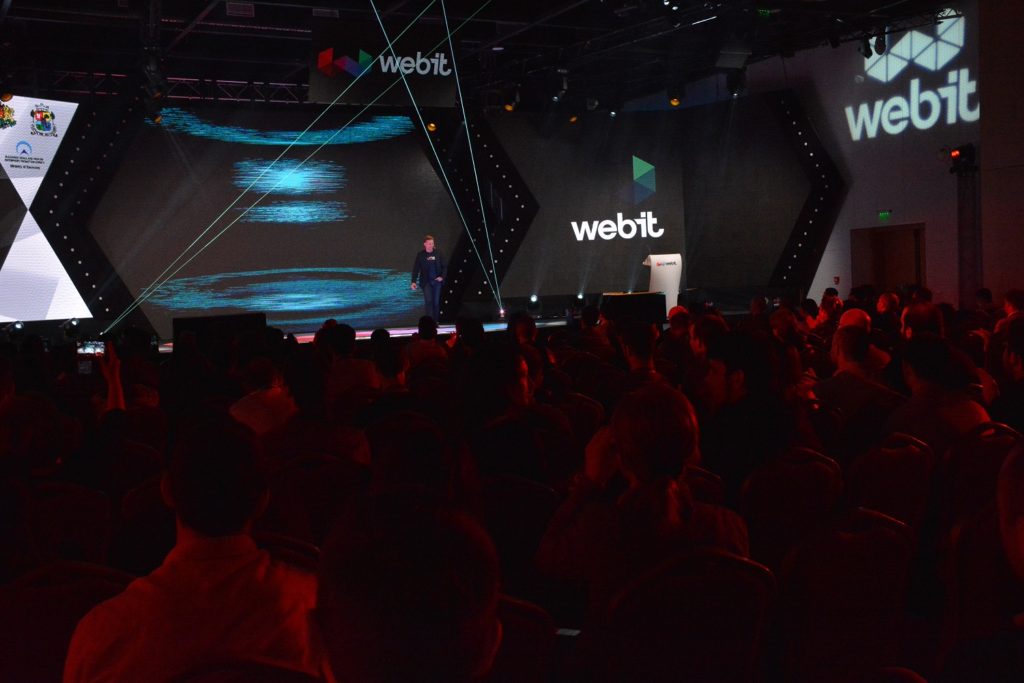 The VP for Cloud and Mobile Technology Strategy at IBM Jonas Jacobi.[/caption]
Connected cars present a giant market opportunity. But now there are even 3D printed self-driving minivans that are with built in AI. We can talk to the bus and communicate with it. We can even ask for a good restaurant and it will take us there. Now technology is not disrupting just one business, but several at the same time.
If you can 3D print a car then you disrupt manufacturing, traffic planning, optimizing traffic fall and making it greener. This is where we are heading. Soon we will just be able to download a blueprint and go print our own personalized car in the shop.
The other giant trend in technology is the rise of Artificial Intelligence. And while many people perceive the adoption of such technology as a start of the battle between the man and machine, the reality is that AI will augment humanity and human intelligence, not replace us.
The VP for Cloud and Mobile Technology Strategy at IBM Jonas Jacobi.[/caption]
Connected cars present a giant market opportunity. But now there are even 3D printed self-driving minivans that are with built in AI. We can talk to the bus and communicate with it. We can even ask for a good restaurant and it will take us there. Now technology is not disrupting just one business, but several at the same time.
If you can 3D print a car then you disrupt manufacturing, traffic planning, optimizing traffic fall and making it greener. This is where we are heading. Soon we will just be able to download a blueprint and go print our own personalized car in the shop.
The other giant trend in technology is the rise of Artificial Intelligence. And while many people perceive the adoption of such technology as a start of the battle between the man and machine, the reality is that AI will augment humanity and human intelligence, not replace us.
“At IBM we are working a lot with AI on healthcare. AI can help doctors reach a decision faster, get access to more information faster and anything else in the market. In this case it is an opportunity to improve and safe life of many”, Jacobi said.He thinks that cognitive systems do not think for us, but help us do research and make better decisions. The IBM expert said that no matter how hard we resist and try to push back change, it will inevitably come to us, so we should instead endorse it and bring it in. Because the sooner we adopt new technology, ideas and business models, the faster we can evolve as companies and individuals. You may watch Jonas Jacobi’s full lecture here: If you want to keep up with the latest trend in the world of digital economy and technology, then Webit.Festival is the right place for you. Visit our website and book 2 of our Super Earlybird tickets for Webit.Festival Europe 2018 for just €100. Feel the Webit vibe with some of the best photos from this year’s event! [easingslider id="4954"]
